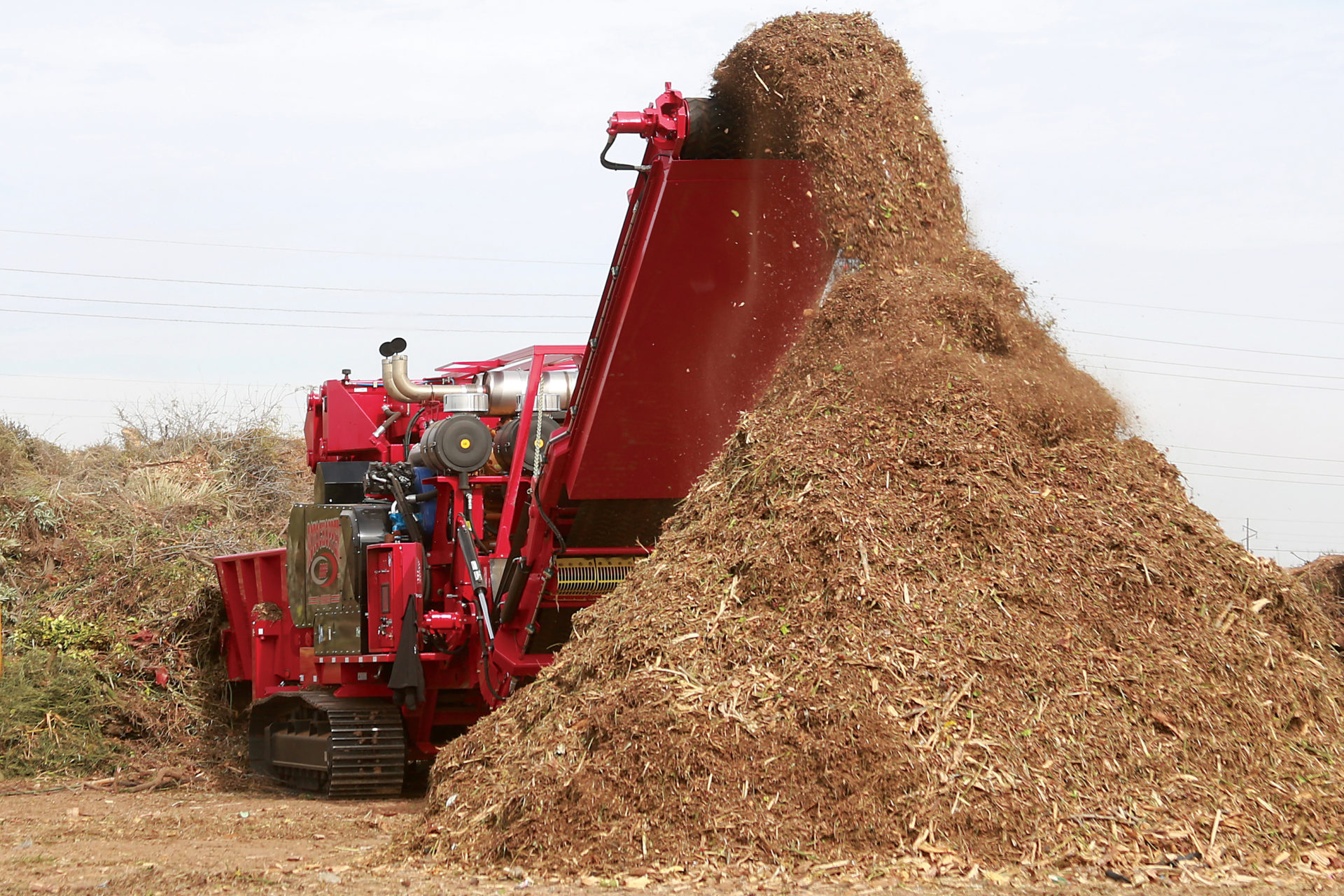
It might not look like much, given how simple it is, but there might not be anything as powerful as compost.
You’ve probably heard a thing or two about compost and considered trying it out for yourself to reduce the trash you throw out or to help your garden. But what exactly is going on when you make compost? Why is it so helpful? Are there more opportunities besides a healthier garden? How can a Rotochopper horizontal grinder provide profit opportunities to the compost industry?
How is Compost Produced?
Compost is the end product when organic material (leaves, manure or food scraps, for example) has decomposed through controlled biological processes, according to the US Composting Council.
The decomposition happens thanks to microorganisms. Under the right conditions, they quickly grow and multiply, breaking down the material while generating heat, water vapor and carbon dioxide. The heat sanitizes the material while turning it into something that is usually unrecognizable from the initial material. It typically looks a lot like dirt, which makes sense given that this type of matter is a vital component of healthy soil.
What Does Compost Do For Soil (and For Us)?
Compost absolutely provides benefits to plants growing in the soil, the US Composting Council says. Compost not only adds nitrogen, a plant nutrient and benefit overall, but the positive effects go beyond this single benefit.
Compost continues to enhance the soil and environment by,
- improving the soil structure and creating a better environment for plant roots;
- allowing soil to hold more water, which can reduce erosion and runoff and make sandy soils more viable;
- helping plants retain nutrients longer. Unlike fertilizer, which adds a lot of nutrients, compost adds a small amount of nutrients but helps the soil retain them;
- promoting microorganism growth, which continues the cycle of organic breakdown and helps plants absorb more nutrients from the soil;
- suppressing plant diseases and binds contaminants, making it useful for applications like storm water treatment, restoration of wetlands or restoration of soils contaminated by petroleum.
Compost allows fewer pesticides/herbicides to be needed, which also improves our overall water quality. Further, the creation of compost means removing a lot of material from our usual waste disposal methods. Imagine how much food waste could be removed from restaurant dumpsters, or how much yard waste can be kept out of landfills. Using less landfill space means lower waste disposal costs in the future.
Additionally, compost material can also represent a valuable opportunity.
What Can Be Done With Compost?
While even a household composting bin plays a part, and is a great start, the opportunities of composting goes well beyond the capacity that is available in single household systems. The opportunities scale accordingly, too. Landscapers can offer composting as part of a healthy site renovation. Large companies can use compost to help offset other environmental impacts. Construction companies might use compost to help a project meet compliance standards. Municipalities might use huge amounts of compost to help with flood mitigation. You can read more about these kinds of applications at the US Composting Council website.
Better soil. Better plant growth. Cleaner air and water. Reduced landfill use. All while creating smart economic opportunities … what can’t compost do?
Businesses, cities and consumers are all looking for ways to reduce environmental impact while still solving modern problems. Compost could be the answer for a lot of those problems, and that means growing demand. You could help meet that demand, and our variety of horizontal grinders offer application specific solutions that will help you do just that! Learn more about Rotochopper’s compost applications here.
